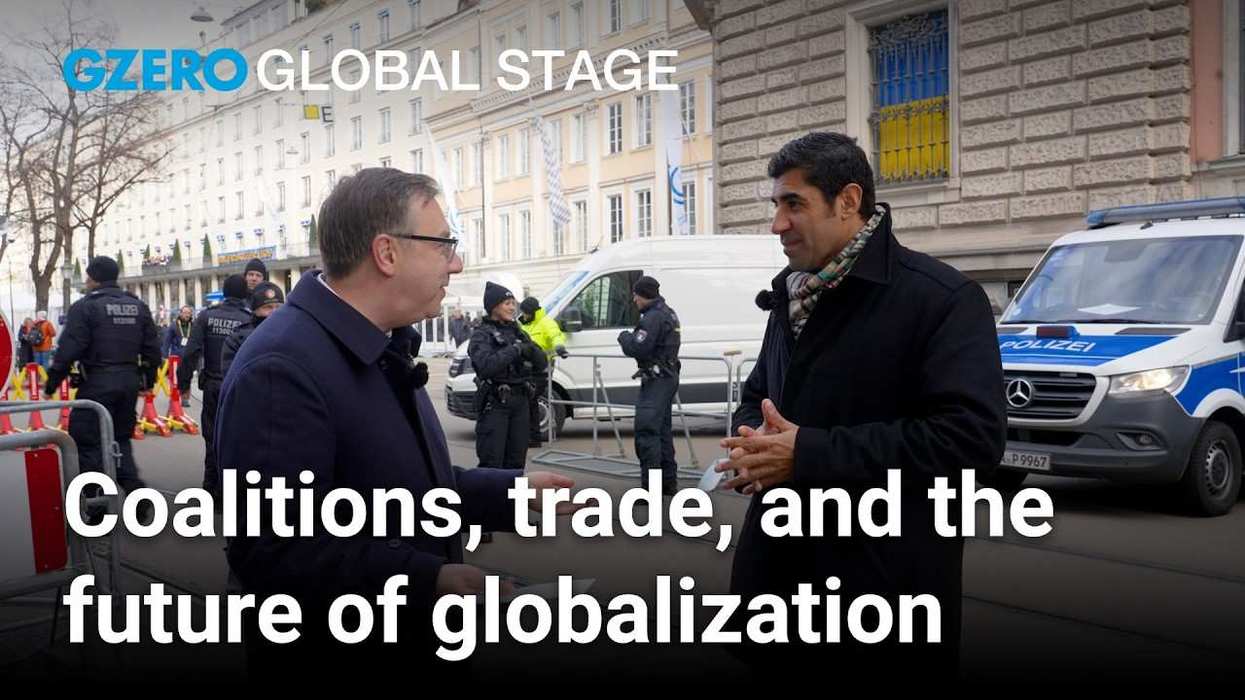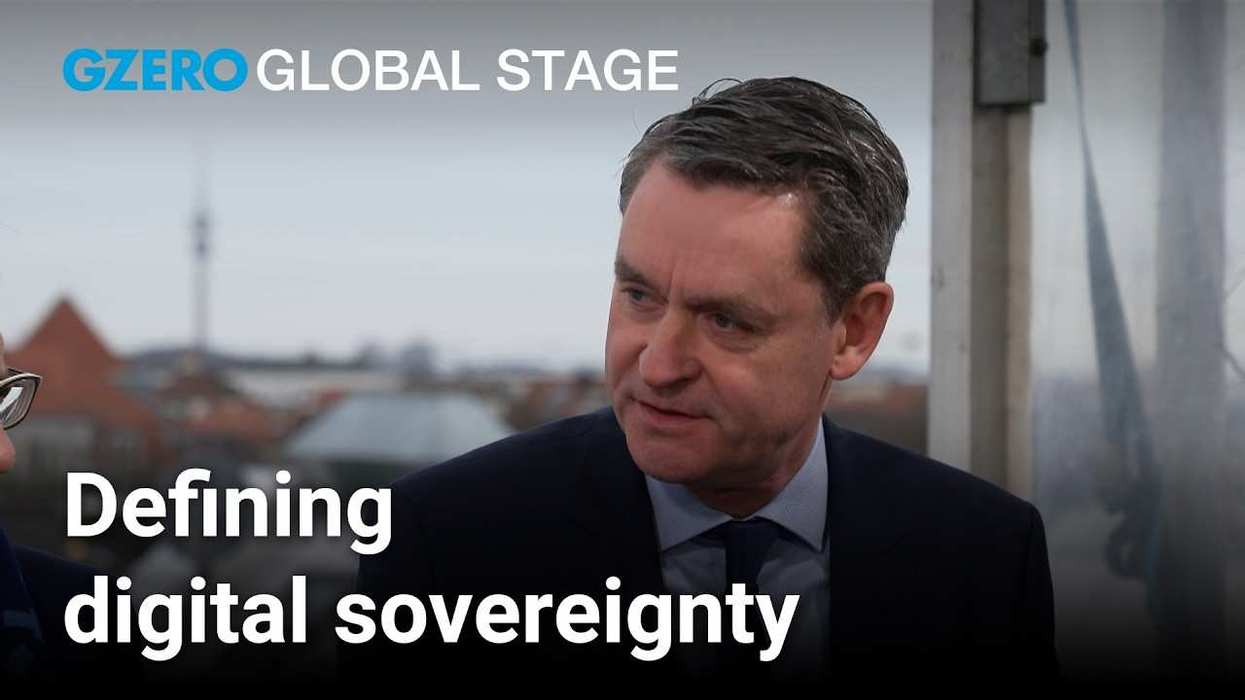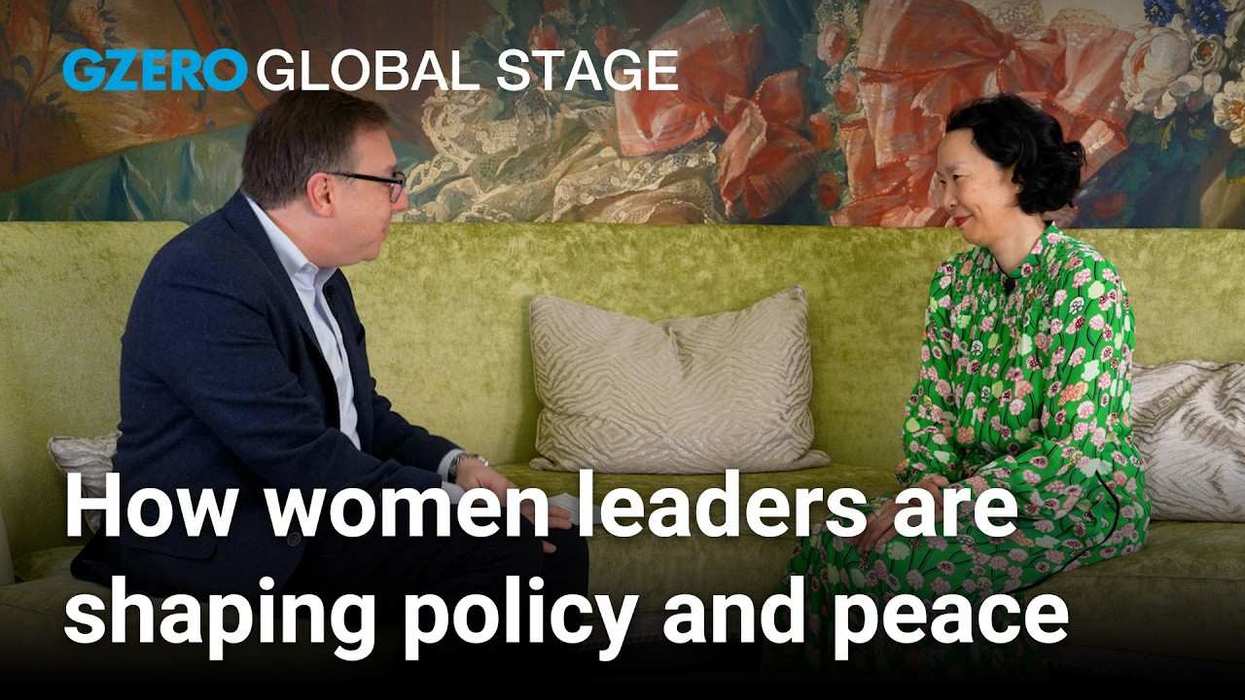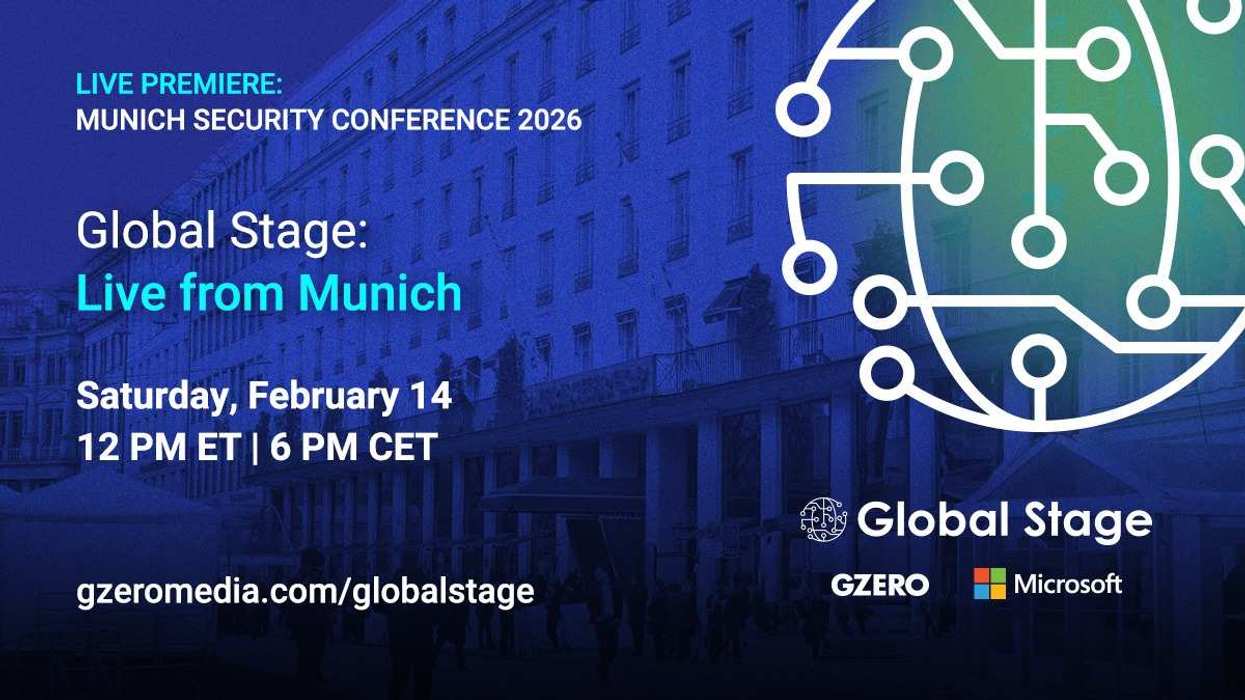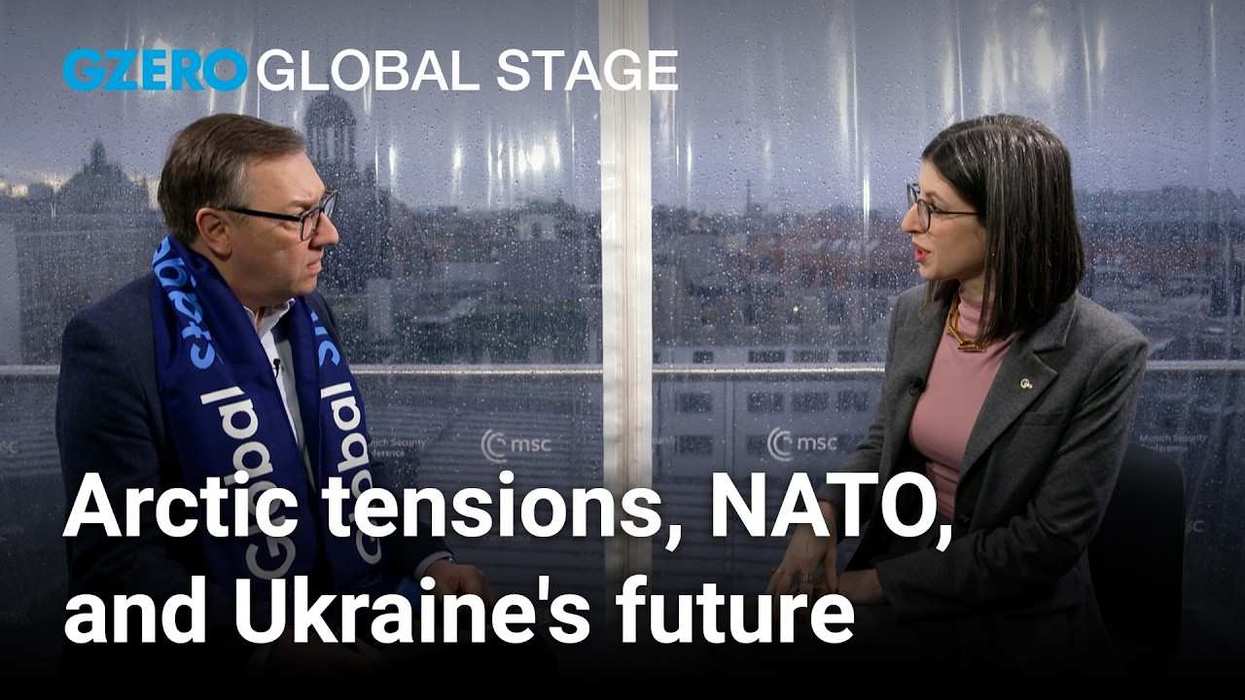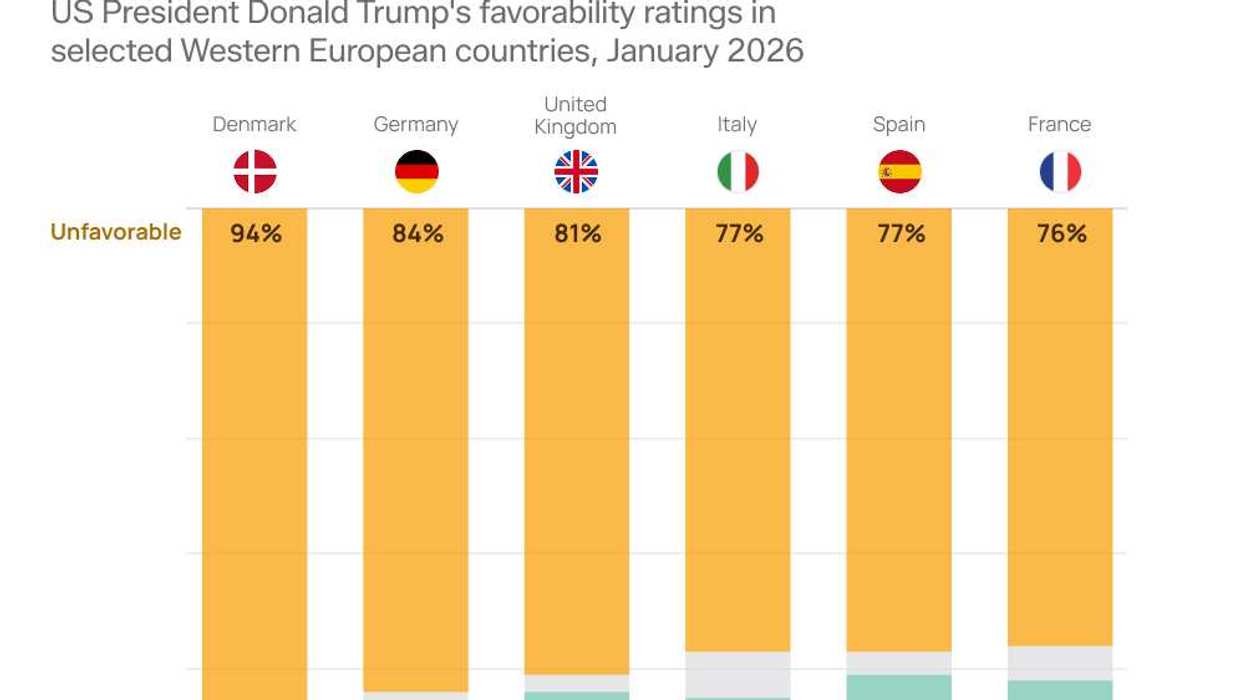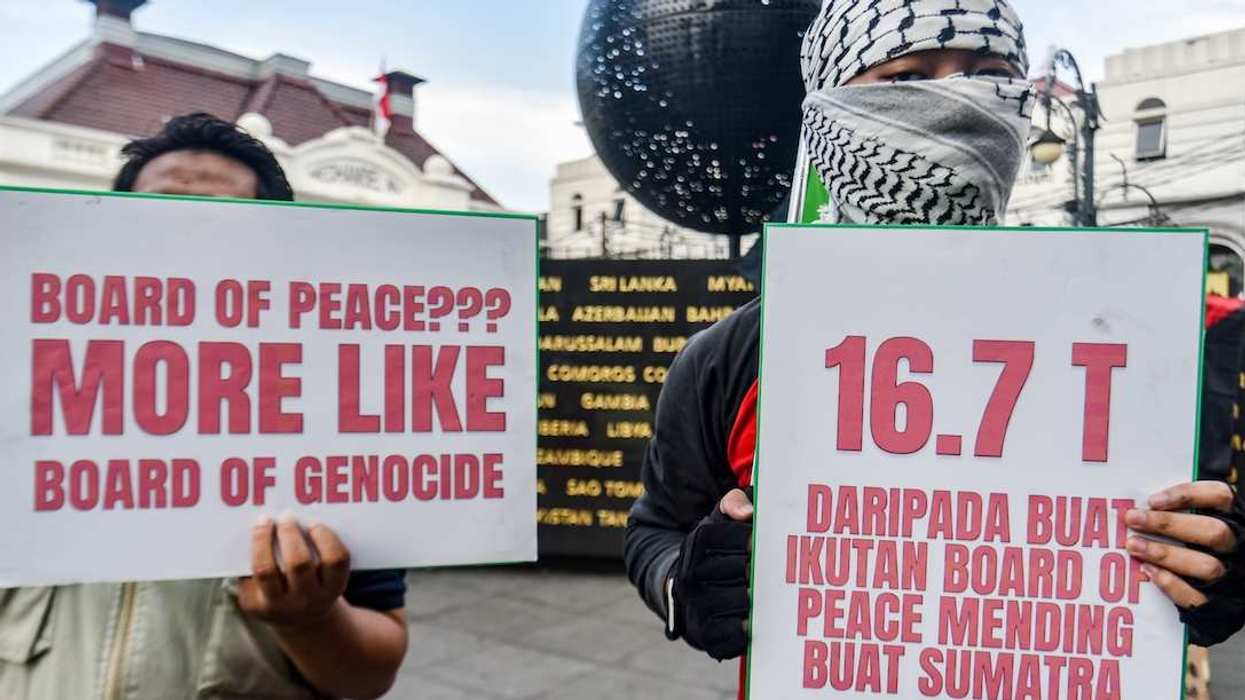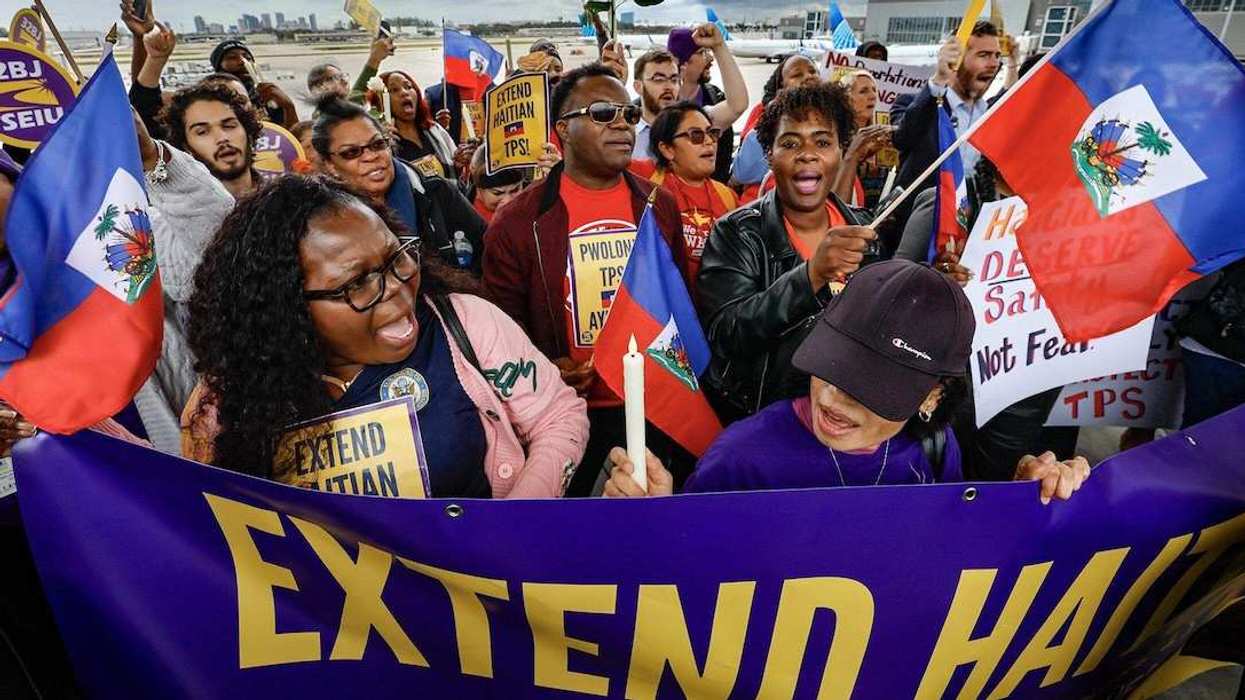VIDEOSGZERO World with Ian BremmerQuick TakePUPPET REGIMEIan ExplainsGZERO ReportsAsk IanGlobal Stage
Site Navigation
Search
Human content,
AI powered search.
Latest Stories
Sign up for GZERO Daily.
Get our latest updates and insights delivered to your inbox.
Global Stage: Live from Munich
WATCH RECORDING
Europe
Presented by
Ian Bremmer shares his insights on this week's World In (More Than) 60 Seconds:
How will the EU coronavirus recovery fund work and are there winners and losers?
How it's going to work? Hundreds of billions of euros being distributed between, its collective redistribution from wealthy countries to poor countries. And that money has been now unanimous agreement between all 27 members of the European Union. Not 28, the Brits are no longer a part of the table. And it's historic. It's by far the biggest political success that we've seen anywhere around the world in providing real multilateral leadership to help make it easier for those countries that are suffering the most. In the case of Europe, that means the poorer countries that don't have the ability to bail out their devastated economies. Again, you are seeing double digit contractions across Europe economically this year. Now you're seeing hundreds of billions of euros, half of that will be grants, don't need to pay back, half will be loans. That was a big part of the of the debate, of the controversy.
And who's it going to go to? It's going to go to the southern Europeans, like Italy, like Spain. It's going to go to the Eastern Europeans. And part of that, that's where you have some of the problems that some of those East Europeans do not actually support. All of the mandated rule of law, independent judiciary that you're supposed to, to be a part of the EU, the EU has not been able to sanction them. Countries like Hungary and Poland precisely because you need unanimity to do so and it's hard to get unanimity. Some of the wealthier countries are saying, "well, we're not going to give that money unless we can ensure that everybody that gets it actually is aligned politically." Well, that didn't work. So, countries like Poland and Hungary will continue to have their political systems diverge from those of the west and the north. That's bad for Europe long term, but for the short term, Euroscepticism is actually on the decline, not on the rise, because even if you're a Eurosceptic in a country like Italy or Greece or Hungary, if they're saying they're going to give you money to help bail you out, mutualized debt, something that no one thought could have happened before the pandemic, you're reasonably happy with that. I mean, you know, you're not going to give up free money. That's how I like Ayn Rand Institute accepting cash from the US government. You know, I mean, you read "Atlas Shrugged." I mean, I suppose, though, it was horrible, but that doesn't mean you won't take free money from the government. That's just your ideology. Who cares about that?
What is going on with Turkey and Greece in the Aegean Sea?
Well, the Turkish government is now sending a bunch of military vessels, looks like towards this Greek economic exclusion zone, which is where the Greeks are saying they have the right to exploit resources in the Aegean Sea. The Turks are contesting that. It's kind of like the dispute you've seen in the South China Sea, where the international community clearly supports one set of norms in the fishing and mineral rights that are off of countries borders. But the more powerful country militarily in the region, China, is trying to subvert that. That is what we are potentially now seeing with Turkey and the Greeks. With the Turks saying they have the right to exploit and providing licenses for doing so and suddenly a bunch of military ships showing up. Very interesting because Greece and Turkey are both NATO allies. The Americans are supporting the Greeks, as the international community broadly does here, in terms of their definition of what their territoriality actually implies, where it expands to. But that doesn't mean the Turks are going to listen. And the fact there's been a bit of a bromance between President Trump and Turkish President Erdogan complicates this. So, we should watch this very closely. Big win for the Greeks in terms of the EU deal, potentially big problems in terms of the fight with Turkey.
Finally, is Russian influence in UK politics really the "new normal?"
I'm going to say no. I think people continue to exaggerate what the Russians are actually able to accomplish. It is true that they provided lots of disinformation and certainly weren't saying, they weren't open about it, they weren't saying "this is coming from Russia." It wasn't state propaganda. It was pretending to be local actors with the Brexit referendum, with the Scottish independence referendum, and of course, in the United States with the US elections. But the amount of money is relatively limited. And the outcomes, I would argue, are much more divisive because of problems in these countries themselves. The Russians tried to have that same kind of impact on the German elections and it failed. Why did it fail? Because the German people were generally happier with their social contract, generally weren't prepared to listen to crazy extremist conspiracy theories. In the US, in the UK, where lots of people increasingly feel like their own systems are delegitimized and rigged, they're more willing to listen to wackos. And so, they're more susceptible to delegitimization efforts, whether they're domestic or international. So, if you really want to fix this, I mean, yes, the US needs to respond and show that if the Russians hit us on cyber, we're going to hit them on cyber. That tit for tat is completely understandable and appropriate. But you're not going to fix the problem until you actually build your own resilience at home and that's what we need to be doing. Certainly true for the UK.
Keep reading...Show less
More from Europe
Ian Bremmer: The US–China AI space has “Zero Trust”
February 15, 2026
Why countries are picking their own alliances
February 15, 2026
What does “sovereign cloud” really mean?
February 15, 2026
The power of women leaders in global decision-making & peacebuilding
February 14, 2026
NATO’s new normal: “We may not be at war, but we’re not at peace”
February 14, 2026
Quick Take
Feb 14, 2026
Can tech rebuild trust?
February 14, 2026
President Trump's power-first foreign policy with CFR's President
February 14, 2026
Ian Explains
Feb 13, 2026
Hard Numbers: Valentine’s Day Edition
February 13, 2026
US-Iran talks: Are strikes inevitable?
February 13, 2026
You vs. the News: A Weekly News Quiz - February 13, 2026
February 13, 2026
Are we in an era of "wrecking ball politics?"
February 12, 2026
Munich Security Conference: Can Europe defend itself without the US?
February 12, 2026
Graphic Truth: Where risk is heating up the fastest
February 12, 2026
Graphic Truth: Europe isn't loving Trump
February 12, 2026
US government to fund MAGA-aligned groups in Europe
February 12, 2026
Puppet Regime
Feb 12, 2026
Cyber resilience for small enterprises
February 12, 2026
Sanae Takaichi has the power to change Japan
February 11, 2026
Post-Gen Z revolution, where does Bangladesh go next?
February 11, 2026
What’s Good Wednesdays™, February 11, 2026
February 11, 2026
Football wins, local economy scores
February 11, 2026
Walmart’s $1 billion investment is strengthening associate careers
February 11, 2026
Building community-first AI infrastructure
February 10, 2026
Venezuela’s window is open – but only a little
February 10, 2026
ask ian
Feb 10, 2026
Trump says Modi says he won't buy more oil from Russia
February 10, 2026
Freedom of expression at the Olympics
February 09, 2026
Bad Bunny makes it to the Oval Office
February 09, 2026
US troops arrive in Nigeria
February 09, 2026
Trump announces new Olympic games
February 09, 2026
Inside Mastercard’s vision for smarter, connected mobility
February 09, 2026
Is the tide turning on Russia’s sports exile?
February 06, 2026
You vs. the News: A Weekly News Quiz - February 6, 2026
February 06, 2026
Graphic Truth: India's imports of Russian oil
February 05, 2026
The American experiment in Liberia
February 05, 2026
The Debrief
Feb 05, 2026
Renters catch a break
February 04, 2026
Is Trump about to strike Iran (again)?
February 04, 2026
Walmart’s commitment to US-made products
February 04, 2026
What’s Good Wednesdays™, February 4, 2026
February 04, 2026
Is China’s currency coming for the US dollar?
February 04, 2026
Haiti is on borrowed time
February 03, 2026
Building community-first AI infrastructure
February 03, 2026
Epstein and America’s two-tier justice system
February 03, 2026
Why Singapore sees AI as an opportunity, not a threat
February 03, 2026
Trump’s next move in Iran
February 02, 2026
The politics of population
February 02, 2026
How Singapore navigates a fragmented world
February 02, 2026
Singapore's global moment, with President Tharman Shanmugaratnam
January 31, 2026
Singapore thrived on globalization. Now what?
January 30, 2026
Graphic Truth: Costa Rica’s severe murder rate
January 30, 2026
Costa Rica’s crime-time election
January 30, 2026
You vs. the News: A Weekly News Quiz - January 30, 2026
January 30, 2026
Why the EU-India trade deal matters
January 29, 2026
What to know about China’s military purges
January 28, 2026
Five forces that shaped 2025
January 28, 2026
What’s Good Wednesdays™, January 28, 2026
January 28, 2026
Two US borders, two different approaches to Trump
January 28, 2026
Walmart’s commitment to US-made products
January 28, 2026
GZERO Europe
Jan 27, 2026
GZERO Series
GZERO Daily: our free newsletter about global politics
Keep up with what’s going on around the world - and why it matters.


